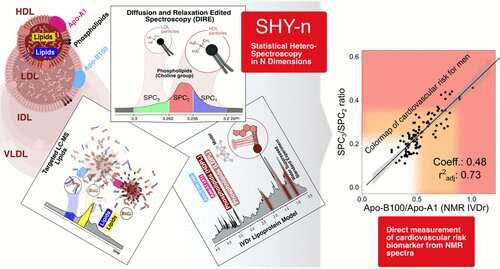UNIVERSITY OF TEXAS M. D. ANDERSON CANCER CENTER Researchers from The University of Texas MD Anderson Cancer Center discovered that treatment resistance in patients with myelodysplastic syndromes (MDS) is caused by two distinct classes of stem cells and identified possible therapeutic approaches that target these cells. Their findings, which could have significant benefits for patients with disease...
Women with irregular periods may be at risk for liver disease
THE ENDOCRINE SOCIETY WASHINGTON—Women with long or irregular periods are known to have a higher risk of type 2 diabetes and heart disease, but researchers found these women may also be at risk for nonalcoholic fatty liver disease (NAFLD), according to a new study published in the Endocrine Society’s Journal of Clinical Endocrinology and Metabolism. About...
Women are more susceptible to Alzheimer’s Disease: new evidence
CHINESE ACADEMY OF SCIENCES HEADQUARTERS Epidemiological studies have shown that women are twice as likely as men to develop Alzheimer’s disease (AD), but the cause of this phenomenon has been unclear. Now, however, a study led by Prof. Keqiang Ye from the Shenzhen Institute of Advanced Technology (SIAT) of the Chinese Academy of Sciences provides...
Connecting stress, weight, and social anxiety in early adolescence
by Ecole Polytechnique Federale de Lausanne Credit: Pixabay/CC0 Public Domain Between the end of childhood and the beginning of adolescence, there is a critical window of time referred to as “peripuberty.” This transitional period involves developmental changes in both fat tissue and in the brain in which both can be re-programmed by exposure to stress,...
Evidence links e-cigarette use with increased odds of prediabetes
by Elsevier Credit: Pixabay/CC0 Public Domain An analysis of data from a large, nationally representative survey of the US population shows that e-cigarette use is associated with increased odds of prediabetes. The findings, which are reported in the American Journal of Preventive Medicine, add important evidence about the health effects of e-cigarettes and can help shape...
Researchers find that blood pressure medications impact brain function
by University of Minnesota Medical School Credit: Pixabay/CC0 Public Domain Published in Science, University of Minnesota Medical School researchers found that blood pressure medications have an unanticipated effect on the brain. The research team discovered that drugs used to treat blood pressure unexpectedly increase the effect of opioids that the brain naturally produces. This can fine-tune the function of a...
WHO recommends Merck COVID pill for non-severe, at-risk patients
This transmission electron microscope image shows SARS-CoV-2 — also known as 2019-nCoV, the virus that causes COVID-19 — isolated from a patient in the US. Virus particles are shown emerging from the surface of cells cultured in the lab. The spikes on the outer edge of the virus particles give coronaviruses their name, crown-like. Credit:...
How to mosquite-proof your property after a flood and cut your risk of disease
by Cameron Webb, The Conversation Credit: CC0 Public Domain The extreme weather and flooding in recent days is likely to boost mosquito numbers, even as we say goodbye to summer. Like all insects, mosquitoes thrive in warm conditions. Water is also critical for the mosquito’s life cycle, as they lay eggs in and around water. More water...
Biomarker discovery measures COVID-19 heart disease risk
by Murdoch University Graphical abstract. Credit: Analytical Chemistry (2022). DOI: 10.1021/acs.analchem.1c05389 Researchers at Murdoch University’s Australian National Phenome Centre have discovered a new set of biomarkers for increased risk of cardiovascular disease in patients with COVID-19 infections. COVID-19 infection has previously been associated with significantly elevated risks of multiple types of cardiovascular disease and cardiac insufficiency, and...
An oral medication shows benefits treating Type 1 diabetes for at least two years after diagnosis
by University of Alabama at Birmingham Credit: Unsplash/CC0 Public Domain Use of the drug verapamil to treat Type 1 diabetes continues to show benefits lasting at least two years, researchers report in the journal Nature Communications. Patients taking the oral blood pressure medication not only required less daily insulin two years after first diagnosis of the...







